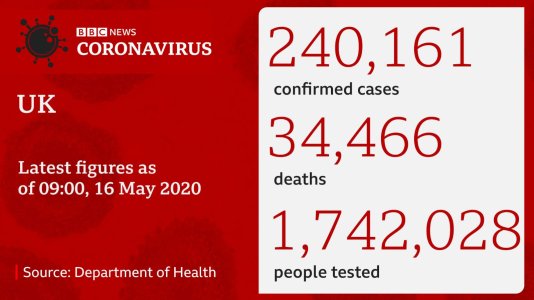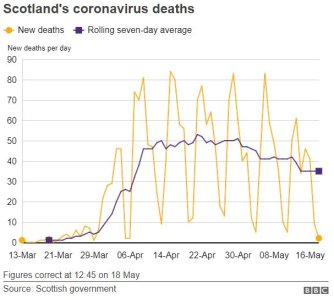- Joined
- Oct 2, 2004
- Runs
- 218,142
England death figures: Which age groups are worst affected?
Of the 23,709 confirmed reported deaths so far in hospitals in England of people who tested positive for Covid-19, 12,451 (53%) have been people aged 80 and over while 9,184 (39%) were 60-79, NHS England said.
So 91% of all hospital Covid-19 deaths have been people aged 60 or over.
A further 1,890 (8%) were aged 40-59, with 172 (1%) aged 20-39 and 12 (0.05%) aged 0-19.
The number of deaths announced so far by University Hospitals Birmingham NHS Foundation Trust stands at 826 - the highest for any trust in England (though note that NHS trusts serve different-sized catchment populations).
Barts Health NHS Trust has announced 570 deaths and London North West University Healthcare NHS Trust has announced 555 deaths.
Four trusts have announced between 400 and 500 deaths: King's College Hospital NHS Foundation Trust (466), the Royal Free London NHS Foundation Trust (459), the University Hospitals of Derby and Burton NHS Foundation Trust (428) and Imperial College Healthcare NHS Trust (402).
Of the 23,709 confirmed reported deaths so far in hospitals in England of people who tested positive for Covid-19, 12,451 (53%) have been people aged 80 and over while 9,184 (39%) were 60-79, NHS England said.
So 91% of all hospital Covid-19 deaths have been people aged 60 or over.
A further 1,890 (8%) were aged 40-59, with 172 (1%) aged 20-39 and 12 (0.05%) aged 0-19.
The number of deaths announced so far by University Hospitals Birmingham NHS Foundation Trust stands at 826 - the highest for any trust in England (though note that NHS trusts serve different-sized catchment populations).
Barts Health NHS Trust has announced 570 deaths and London North West University Healthcare NHS Trust has announced 555 deaths.
Four trusts have announced between 400 and 500 deaths: King's College Hospital NHS Foundation Trust (466), the Royal Free London NHS Foundation Trust (459), the University Hospitals of Derby and Burton NHS Foundation Trust (428) and Imperial College Healthcare NHS Trust (402).







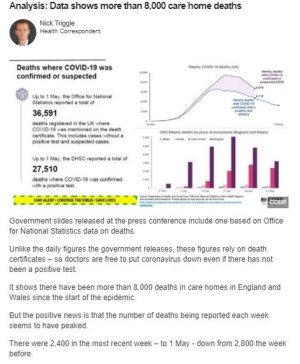

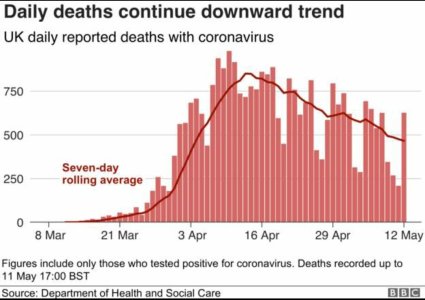

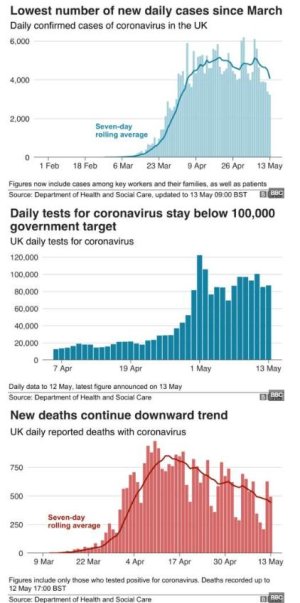


 )
)
